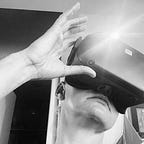What Does Minecraft for Music Look Like?
When writing a song becomes a game everyone can play
Depending on who you ask, Minecraft is either a wonderful tool for teaching tweens collaboration and coding skills, or a terrible game that’s making them all obese, cross-eyed antisocial weirdos who dwell in virtual worlds. For those of you who don’t know any twelve-year-olds, Minecraft is a game that looks retro and is deceptively simple — players use blocks to build worlds, and then have to strategize to keep expanding those universes. The game has no stated goal, time limit, or endpoint, and it has spawned any number of associated YouTube stars (a user called Stampy being the most popular), mods, and books. Regardless of whether you love it or hate it, it’s a cultural phenomenon.
So what does it look like when the Minecraft mindset starts spreading to other forms of entertainment? Recently, a number of collaborative music platforms have started springing up — the most recent, Looplabs, bills itself as “a collaborative cloud based music studio that lets anyone, regardless of technical skills or ability, quickly and easily make professional quality music anywhere, anytime and with anyone.” There are tons of karaoke apps and remix apps floating around, all promising to more or less let you, the amateur, control the music.
While all of these might seem like fun little toys now, they could have huge implications for the way music is bought, sold, and consumed in the future. If you’re old enough to remember the DIY revolution rallying cry of the 80s and 90s, this might seem like an ideal world — back then, anyone could start a band, but you still needed like minded friends, equipment, recording gear, and access to some sort of printing and distribution infrastructure in order to get your product out there. Now, all you need is a laptop and an internet connection — and as the Looplabs copy says, you don’t need any technical skills or ability.
We’ve already seen millennials and generation Z start favoring stars from outside the established system — making enough great clips on Vine or Instagram can net you a sizeable following and endorsement deals, without having to go through the old Hollywood process of auditioning. Certainly plenty of musicians have risen through the user-generated ranks as well, but at some point many of them enter the star-making machine and start recording full tracks, working with labels and promoters, and becoming more polished.
But if Looplabs and its contemporaries take off, we could see a seismic shift. For one, if everyone is creating music with samples and just putting it out there for other people to share and grab and iterate on, why would we need professionals or stars? Wouldn’t it be easier and more fun to just put together tracks and trade them with friends, IRL or online? Just like kids are increasingly drawn to unboxing videos or Vines of dudes on skateboards rather than professionally produced network TV, why would they want to pay attention to pop stars when they can remix their buddy’s sampled creation and get immediate feedback?
All the time labels spend worrying about piracy, and what could help do them in could be something that’s perfectly legal. If the need for professional performers and songwriters goes away, so does much of the reason most of the music industry’s current infrastructure exists. Maybe they can spend time finding really talented people on Looplabs and signing them…but I doubt that will work. There could be a small handful of Minecraft-for-music stars, but the great thing about someone like Stampy is that anyone can Stampy. He’s just a dude who really, really like Minecraft, and happens to devote most of his waking hours to it.
Things will also get interesting when brands get involved. Stampy’s estimated earnings for monetizing his YouTube videos were north of $2 million last year, and eventually more corporations will start to see the adopting the Minecraft mentality as a way to reach young consumers. If a brand wants to use more popular shared collaborative tracks from a service like Loop Labs or Propellerheads, who owns what, and who gets paid? If your track is a remix of a remix of a bunch of random samples, then who owns any of it? Or is it just fair game for Pepsi to put in an ad for no money?
Perhaps this is all just alarmist, and companies like Looplabs will just continue to be fun games for kids who want to goof off with samples. People have been making music in garages and basements since instruments became more widely available and affordable, and we still have superstars who sell out arenas. And not everyone will want to listen to their classmate’s odd mash-up of samples all the time. But this is definitely something to keep an eye on, because never before has the ability to carve out a little niche of micro-stardom been so available to so many, at such a low price.
It’s always worth remembering that the future is never fixed, especially in the music business. I cringe whenever people say streaming is the future, because while that’s probably true in the shorter term, the longer view is much murkier. If Looplabs takes over the music world, what’s the point of Spotify? If the next big thing becomes homemade mash-ups of samples and vocals that anyone can make, share, and distribute, then where does that leave labels? If music becomes something everyone can do, with almost no skill needed, what does that mean for professionals — and whether they should be compensated for their work? The DIY revolution people predicted for so long might finally be here — and it looks very different than any of us thought it would.
If you enjoyed reading this, please log in and click “Recommend” below.
This will help to share the story with others.
